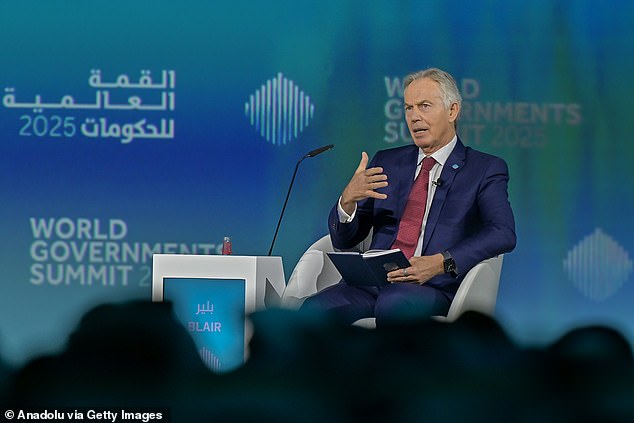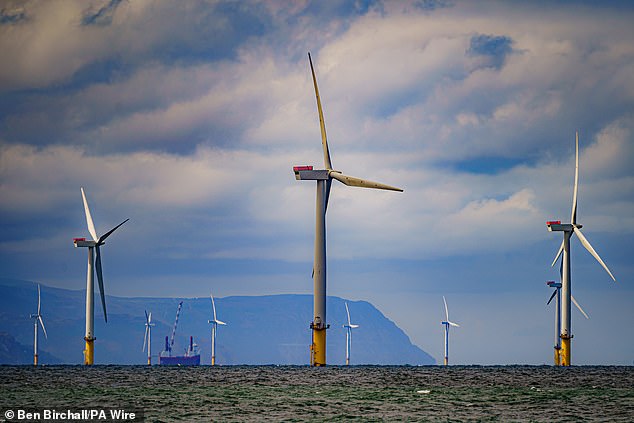The climate change debate has become riven with ‘irrationality’ and ‘hysteria’ and needs a pragmatic reset to win over voters, Tony Blair warns today.
The former Labour prime minister said that while most people in developed countries like the UK believe it is real they are turning away from the politics because of the sacrifices they are being asked to make.
In a forward to a new report by his Institute for Global Change he said there needs to be a switch from ‘protest to pragmatic policy’ because ‘the current approach isn’t working’.
He questioned the Net Zero move to phase out fossil fuels, pointing out that their use is increasing, not falling, and due to predicted energy demand, especially in the developing world, that would continue.
‘These are the inconvenient facts, which mean that any strategy based on either ”phasing out” fossil fuels in the short term or limiting consumption is a strategy doomed to fail,’ he wrote.
‘Political leaders by and large know that the debate has become irrational. But they’re terrified of saying so, for fear of being accused of being ”climate deniers”.
‘As ever, when sensible people don’t speak up about the way a campaign is being conducted, the campaign stays in the hands of those who end up alienating the very opinion on which consent for action depends’.
Despite having been an adviser to COP host Azerbaijan last year, he also criticised the annual UN climate summits as ‘a forum that frankly doesn’t have the heft to drive action and impact.’

The former Labour prime minister said that while most people in developed countries like the UK believe it is real they are turning away from the politics because of the sacrifices they are being asked to make.

He questioned the Net Zero move to phase out fossil fuels, pointing out that their use is increasing, not falling, and due to predicted energy demand, especially in the developing world, that would continue.
The report, The Climate Paradox: Why We Need to Reset Action on Climate Change, argues that climate action has reached an ‘impasse’ just as the crisis escalates.
In March the UN’s World Meteorological Organisation (WMO) confirmed 2024 as the hottest year on record as it released its flagship State of the Global Climate report.
The agency said global average temperatures hit around 1.55C above pre-industrial levels, outstripping even the record heat of 2023.
Scientists said this was mainly driven by the ongoing rise in planet-heating emissions but was also coupled with the warming El Nino weather phenomenon in the Pacific.
Earlier this month a major annual report showed Europe is the fastest-warming continent in the world.
Storms were often severe and flooding was the most widespread since 2013, claiming at least 335 lives and affecting around 413,000 people.
Author Lindy Fursman wrote that Net Zero polities ‘are increasingly viewed as unaffordable, ineffective, or politically toxic’.
‘The current climate debate is broken. Public confidence in policies to reduce emissions and spark green growth is waning, exacerbated by the fact that many of the promised benefits of past climate policies have failed to materialise,’ she said.
‘Proposed green policies that suggest limiting meat consumption or reducing air travel have alienated many people rather than bringing them along.
‘This failure to deliver has created an opening for populists who exploit public scepticism and frame climate action as an elite-driven agenda.
‘The result? Political will is receding just as the crisis accelerates.
‘Governments are backtracking, businesses are dropping climate targets and voters are electing leaders who deprioritise the planet’s future. The crisis is here, but action is stalling.’











